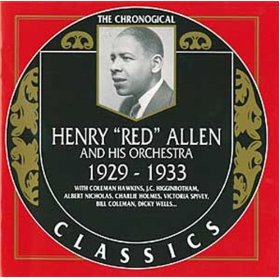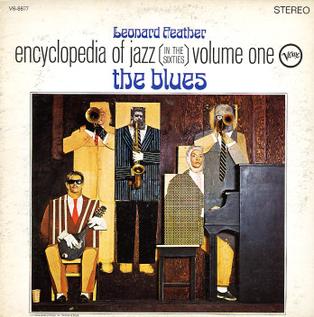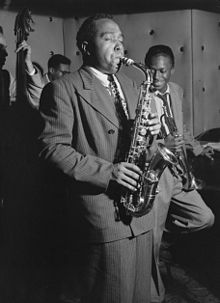
Bebop or bop is a style of jazz developed in the early to mid-1940s in the United States. The style features compositions characterized by a fast tempo, complex chord progressions with rapid chord changes and numerous changes of key, instrumental virtuosity, and improvisation based on a combination of harmonic structure, the use of scales and occasional references to the melody.

Mel Tormé, Rob McConnell and the Boss Brass is a 1986 studio album by Mel Tormé, accompanied by Rob McConnell's Boss Brass Big band. Tormé and McConnell's follow up album, Velvet & Brass was released in 1995.

Miles Davis & Gil Evans: The Complete Columbia Studio Recordings is a box set of music by jazz musicians Miles Davis and Gil Evans originally released on CD in 1996 and remastered and re-released in 2004. It collects work from 1957 through 1968 at Columbia Records recording studios.

Suite for Pops is a 1975 big band jazz album recorded by the Thad Jones/Mel Lewis Jazz Orchestra and released on the A&M Horizon label.

Groovin' High is a 1955 compilation album of studio sessions by jazz composer and trumpeter Dizzy Gillespie. The Rough Guide to Jazz describes the album as "some of the key bebop small-group and big band recordings."

Allégresse is the third studio album by American jazz composer Maria Schneider. The album was released in 2000 by Enja Records.

Sky Blue is the fifth studio album by American jazz composer Maria Schneider. The album was released in 2007 through ArtistShare and was nominated for two 2008 Grammy Awards for Best Large Jazz Ensemble and Best Instrumental Composition.

Super Hits is a greatest hits album from Miles Davis. Released in 2001, it reached #22 on Billboard's Jazz Albums chart.

Heads is the fifth album by the jazz musician Bob James, released in October 1977. It was his first album released on his newly formed Tappan Zee label, which was distributed by Columbia Records. All of his Tappan Zee albums are distributed by E1 Music. The album reached number one on the Billboard Jazz Albums chart.

Theatre is an album by George Gruntz's Concert Jazz Band '83 recorded in July 1983 and released on ECM the following year.

The Smithsonian Collection of Classic Jazz is a six-LP box set released in 1973 by the Smithsonian Institution. Compiled by jazz critic, scholar, and historian Martin Williams, the album included tracks from over a dozen record labels spanning several decades and genres of American jazz, from ragtime and big band to post-bop and free jazz.

1929–1933 is a 1990 compilation album featuring material recorded by Henry "Red" Allen and his orchestra between 1929 and 1933. As the first of five CDs released by Chronological Classics, the album is considered part of the "core collection" by the Penguin Guide to Jazz. Allen and Coleman Hawkins shared leadership of the band.

Dear Diz (Every Day I Think of You) is an album by Cuban jazz trumpeter Arturo Sandoval that won the Grammy Award for Best Large Jazz Ensemble Album in 2013. The album is Sandoval's tribute to his friend, Dizzy Gillespie. Musicians on the album include Gary Burton, Eddie Daniels, Joey DeFrancesco, and Bob Mintzer.

Journey is the second album released by record producer Arif Mardin as leader. Released on the Atlantic label in 1974, it features "a veritable who's who of funk and jazz greats", many of them regular session and studio musicians who appear on Mardin-produced albums for other artists.

The New Don Ellis Band Goes Underground is an album by trumpeter/bandleader Don Ellis recorded in 1969 and released on the Columbia label.

Encyclopedia of Jazz is an album released on the Verve label compiled by jazz journalist Leonard Feather featuring tracks which were recorded to accompany Feather's Encyclopedia of Jazz in the Sixties. The album features three tracks by the Encyclopedia of Jazz All Stars arranged and conducted by Oliver Nelson along with one track each by Jimmy Smith with Wes Montgomery, Count Basie and Johnny Hodges with Earl Hines.

Homage to Count Basie is an album by the Bob Mintzer Big Band that won the Grammy Award for Best Large Jazz Ensemble Album in 2002.
Orchestre National de Jazz is a French orchestra that was created by French Ministry of Culture in 1986. It has had 12 musical and artistic directors, more than 200 soloists and recorded 33 albums. Orchestre National de Jazz won the Victoires du Jazz in 2009 and 2020, and was nominated for a Grammy Award in 2012 for the album Shut Up And Dance composed by John Hollenbeck.

Coming About is a large-ensemble jazz album by composer, arranger, and conductor Maria Schneider and her orchestra that was released in 1996 by Enja Records.


















